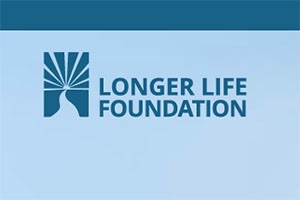 Ten researchers at Washington University in St. Louis have received funding from the Longer Life Foundation, a cooperative effort between the School of Medicine and the Reinsurance Group of America (RGA). The grants help junior investigators launch research projects and assist more established researchers as they extend their investigations into new areas. The foundation supports research aimed at improving methods for promoting healthier lives, enhancing longevity and predicting long-term mortality.
Ten researchers at Washington University in St. Louis have received funding from the Longer Life Foundation, a cooperative effort between the School of Medicine and the Reinsurance Group of America (RGA). The grants help junior investigators launch research projects and assist more established researchers as they extend their investigations into new areas. The foundation supports research aimed at improving methods for promoting healthier lives, enhancing longevity and predicting long-term mortality.
The researchers are:
Luigi Adamo, MD, PhD, instructor of medicine at the School of Medicine, received $47,938 to fund a study into myocardial aging as a B lymphocyte-dependent event.
Grant A. Challen, associate professor of medicine in the Division of Oncology at the School of Medicine, received $50,000 to fund the second year of a study focused on reducing the risk of blood cancer with age by weeding out leukemia-causing stem cells in the bone marrow.
Brian J. DeBosch, MD, PhD, assistant professor of pediatrics at the School of Medicine, received $25,000 to help fund the second year of a study leveraging adaptive hepatic glucose fasting responses against cardiometabolic disease.
Michelle Elvington, instructor of medicine, received $20,000 to fund her research into C3 (H2O) in cellular metabolism and as a marker of human malignancy.
Meredith E. Jackrel, assistant professor of chemistry in Arts & Sciences, received $25,000 to fund the second year of a study focused on restoring proteostasis to counter human disease.
Sungsu Kim, instructor of genetics at the School of Medicine, received $20,000 for his research into apathogenic role for senescent Schwann cells in the aging-associated impairment of nerve regeneration.
Lei Liu, professor of biostatistics at the School of Medicine, received $10,000 for a study into innovative data mining methods for biological age.
William H. McCoy IV, MD, PhD, instructor of medicine, received $20,000 for research into targeting Cutibacterium acnes RoxP to decrease morbidity and mortality of indwelling devices.
Joshua Mitchell, MD, assistant professor of medicine, received $20,000 for a study predicting cardiovascular toxicity of targeted cancer therapy.
Bettina Mittendorfer, professor of medicine, received $62,500 for the Longevity Research Program and her study of dietary protein and cardiovascular health.